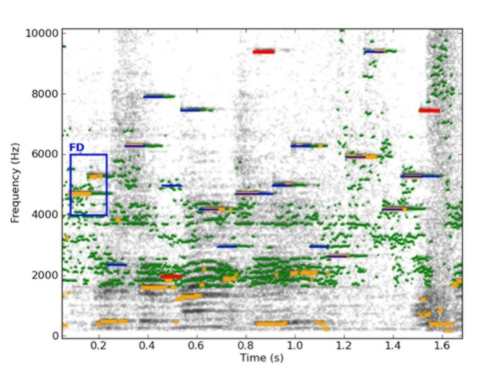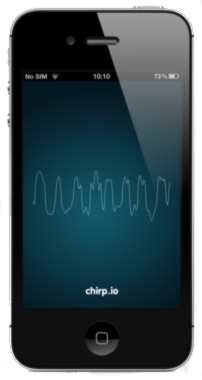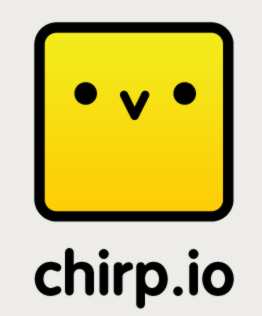| Chirp - A New Way To Send Data |
| Written by Lucy Black | |||
| Monday, 23 July 2012 | |||
|
We are used to QR codes and similar ways of exchanging data between mobiles, but what about chirping like a bird. The idea has been taken up and realized by a new company and you can download the app now. Chirp is an interesting idea, but does it mark a return to old technologies or is it something really new? The idea is that if you want to transfer some data you first code it into audio tones - and audible audio tones at that, no ultrasound is used. The reason for the choice of audio tones seems to be an intent to make the resulting code sound "pretty". You have to admit, one you have heard it, that it does sound like something R2D2 might emit. In this video the BBC's Rory Cellan-Jones performs a test of Chirp that you can join in - if you have the iPhone app:
The sending phone, the "beak" in this new jargon, chirps the audio code and the receiving phone, the "brain", picks it up and decodes it. It is claimed to be fairly resistant to interference and background noise, but given the simplicity of the code it isn't likely to be an optimal coding. Basically 32 tones, a semitone apart, are used to code the alphabet and digits. Again the choice of a semitone spacing seems to be on aesthetic grounds and to make a chirp sound like bird song (or R2D2 song). Given the terrible noises that high performance modems used to make, this might not be such a silly idea and it could allow chirps to be used in social situations where an optimal screech might be unacceptable. Each chirp consists of 20 tone each of 87.2 ms making a chirp last 1.7s.
Even so, you might be surprised that enough data can be packed into such an encoding that it can transmit a say a photo. The simple answer is that it can't. You need to think of it as the audio equivalent of a QR code with just enough data payload to provide a URL. What happens is that the beak first uploads the data to a server, then it chirps and the brain retrieves the data from the URL it has received. Once you know how it works it is slightly disappointing, especially as you need to allow for the time to upload and download the file via a server. In reality this is probably the only practical way to work. Would you be willing to wait the tens of minutes it would take to transfer a photo using audio alone?
Can you think of any innovative uses for chirps? One possibility is that you could transmit a chirp over the radio, or even via a TV, and let the audience have access to a special website. Of course it might turn out to be a reasonable alternative to QR codes and NF but for this to happen we would need the app to be widely installed. Its big advantage is that you only need the two devices to be close to each other. This makes it simple but what about security? Presumably the first Chirp malware will bring a security layer into play and this would make it just as difficult to use as Bluetooth and similar methods.
At the moment there is only a free app for the iPhone, but Chirp promise that an Android app is on its way. There is also a planned API for you to create your own Chirping apps.
More InformationRelated ArticlesQR codes deliver the Flamenco experience QRPedia - simple but effective Samsung TecTiles - NFC Stickers to Program Your Phone
Comments
or email your comment to: comments@i-programmer.info
To be informed about new articles on I Programmer, install the I Programmer Toolbar, subscribe to the RSS feed, follow us on, Twitter, Facebook, Google+ or Linkedin, or sign up for our weekly newsletter.
|
|||
| Last Updated ( Monday, 23 July 2012 ) |




